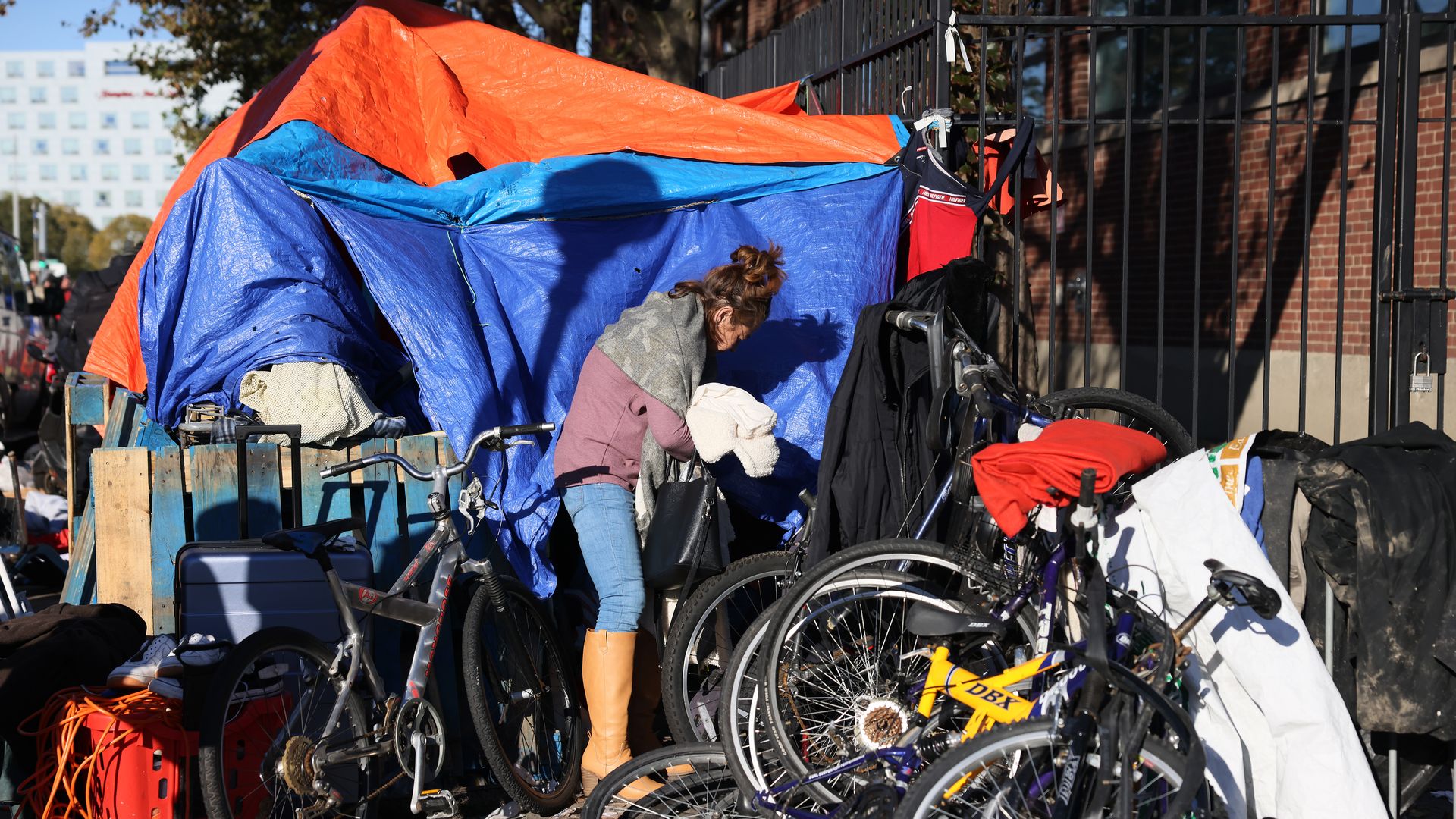Mass. and Cass encampment crisis escalates, officials promise action
Add Axios as your preferred source to
see more of our stories on Google.

People were forced to pack up their belongings before a city-led cleanup of the Mass. and Cass tent city in 2021. Photo: Jessica Rinaldi/The Boston Globe via Getty Images
It's been a bad summer at Mass. and Cass, the troubled stretch of the Newmarket area near Boston Medical Center.
- The tent city there has become the heart of the opioid epidemic and a public safety nightmare.
Driving the news: Nonprofits working in and around the intersection of Massachusetts Avenue and Melnea Cass Boulevard have pulled workers out amid safety concerns and warned Mayor Michelle Wu that violence, crime, drug use and human trafficking are all getting out of hand.
- Wu said last week "we are planning to take a major step" to support law enforcement and maintain public safety, but details about any particular actions are unclear so far.
While Wu is on a family vacation, City Council President Ed Flynn has been using his brief stint as acting mayor to try to make progress.
- Flynn said he won't order a crackdown without Wu's permission, but he's one of several Boston elected officials who signed a letter to police asking them to sweep the area and target people with open warrants for violent criminal offenses or drug trafficking charges.
What they're saying: "It's worse now than it's ever been in terms of the atmosphere and the level of violence and anarchy," Newmarket Business Association executive director Sue Sullivan told WBUR.
What's happening: Incidents at the encampment this summer have included brawls, stabbings and beatings. More weapons are being confiscated than ever before, according to police.
- The former Roundhouse Hotel on Mass. Ave. was the site of a stabbing Tuesday night.
- Even the dognapping of a chihuahua named Alejandro from the Fenway was reportedly connected to Mass. and Cass.
Catch up quick: Wu had the tents removed last year and promised to work on the mental health and substance abuse problems at the heart of the crisis.
- But after the encampment returned, Wu and others at City Hall admitted the strategy has to change.
- "It has gotten to the point where, even those who are experts and do this every single day have said, 'It has reached a new level that is untenable,'" Wu said last week.
The other side: Northeastern University legal fellow Amelia Caramadre urged the city not to increase the criminalization of people with substance use disorder, as it disrupts treatment plans and hinders housing opportunities.
- "It is not the time to diverge from methods with proven success. We need commitment to evidence-based public health approaches that center community treatment and housing," Caramadre wrote to the Globe.
